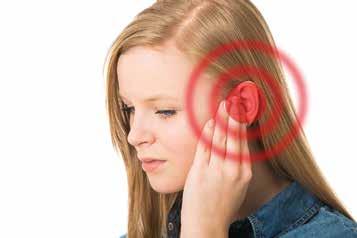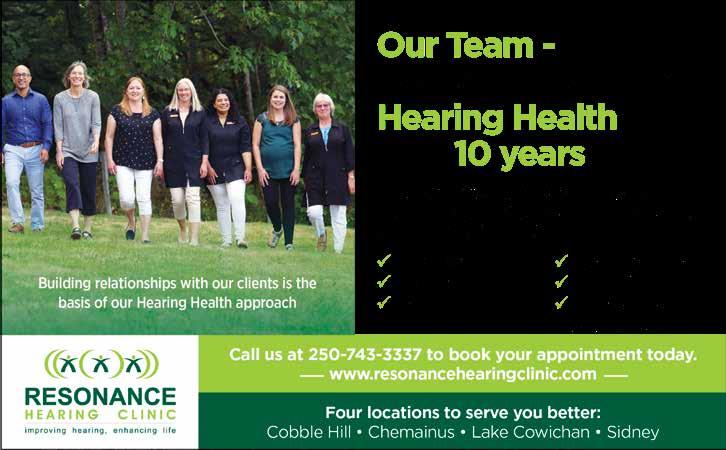
2 minute read
Is Tinnitus Real?
Terence Miranda is a Doctor of Audiology and the owner of Resonance Hearing Clinic
While tinnitus does not have a source that others can hear, it is a very real sound that can be heard clearly by the sufferer. Tinnitus is not a disease but nearly always a symptom of a disease with noise exposure being the leading cause of tinnitus by some margin. There are many other causes of tinnitus including, but not limited to: • Hearing loss, • Blockages in the ear such as wax or an ear infection, • Some medications, • The ageing process and natural deterioration of the hearing organ, • Some ear related diseases (e.g. Meniere’s disease, eustachian tube • dysfunction, acoustic neuroma, etc.), • Some non-ear related diseases (e.g. high blood pressure, • cardiovascular disease, allergies, autoimmune disease, diabetes), and • Head and neck injuries or trauma.
People who experience tinnitus can hear many different sounds, sometimes just the one, sometimes more than one. Tinnitus can be constant, intermittent or pulsatile. People hear ringing, hissing, roaring, screeching, whooshing, static, pulsing, ocean waves, buzzing, clicking, and even music. Tinnitus can be faint or distant, or it can be loud and all-consuming, and anywhere in between. With such a wide range in the sounds of tinnitus, each person experiences it a little bit differently.
Certain factors can make tinnitus worse. Stress and fatigue heavily influence how tinnitus can be perceived. Excessive caffeine, nicotine, alcohol, salt, and artificial sweeteners can all worsen the perception of tinnitus. Tinnitus can be relieved by addressing the disease of which it is a symptom. Unblocking the ears, medicating high blood pressure, or finding an alternative to a tinnitus causing medication are some examples.
When it comes to investigating ear related diseases as the cause of tinnitus, a thorough hearing evaluation is a necessary first step. When one understands the cause of tinnitus, it goes a long way towards reducing its impact. Depending on the results of the audiological evaluation and the individual involved, our clinicians at Resonance use various combinations of counseling, relaxation, amplification and other sound therapies to achieve meaningful reductions in the impact of tinnitus.
If you, or someone you know, are negatively affected by tinnitus, talk with your family doctor or consider booking a hearing evaluation as the first step to achieving relief from the condition.











